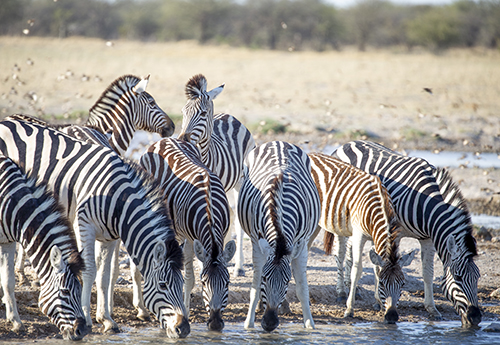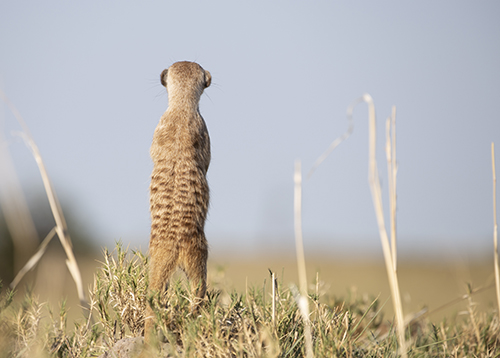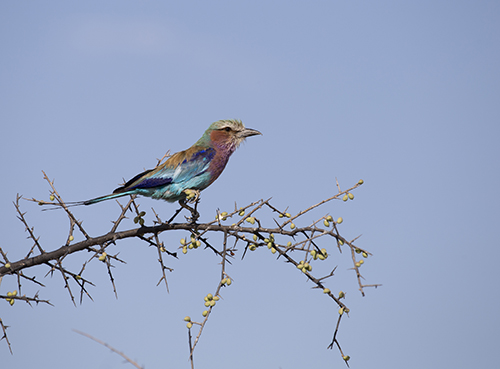Camp Kalahari is situated along the Makgadikgadi salt pans. It’s oppressively hot in the afternoons and even though we’ve come during the wet season, its seen no water for some time. In years past, the watering holes had run dry. This had forced the animals to travel further to survive. They’d come upon cattle, anger farmers by snacking, and get shot. Wanting to protect the wildlife, Botswana enacted a strict 6-yr ban on killing any wild animal. Farmers were at a loss, as government compensation for each cow eaten was not enough to cover the cost of a new cow. Man-made watering holes were the semi-successful solution to keeping the animals close.



Our camp has a small swimming pool, understandably mistaken for a watering hole by thirsty passerbys. We were told that animals would often wander in, but the combination of lions, overeager tourists, and the ban on firearms proved to be too much. An electric fence was installed around the camp a few years ago. Only the elephants have been smart enough to realize a little shock won’t actually kill. (In the defense of other animals, elephants are huge and for all we know, may barely feel the deterrent.)


The fence though, does not stop smaller animals from wandering in. On our last night in camp Kalahari, after our guide had safely walked us to our tent and we’d fallen asleep, I woke up to the sounds of an animal trying to get into our tent. Reasonably, I woke Andrew who just as reasonably told me to go back to sleep. He got up to use the bathroom, putting on his headlamp to navigate the zippers between our sleeping tent and the bathroom tent. “Oh, that’s unfortunate,” he says and comes back to me. “It’s actually in the tent.” I’m a bit panicked. “What? Is it a mouse?” “No, it’s a little bit bigger than a mouse.” The tent had been zipped and the hole between the ground and the end of the zipper couldn’t have been more than an inch or two of clearance. “So, like a squirrel?” I ask. “Yeah, maybe, if a squirrel was a little bit bigger.” For the rest of the night we hear this poor thing trying to escape, not sure how it got in, thrashing against the side of the tent. We’d been given a box containing insect repellent and a bull horn to cry for help, but Andrew assured me it wasn’t necessary, so I instead used the box to barricade the opening to our tent. I heard his little body slam against that too. Just before dawn, it found it’s way out. At breakfast Andrew described the critter to our guide. “Totally harmless,” he says. “It was a genet cat.” He pulls up a picture he had saved on his phone. Next time, we’re using the bullhorn.







